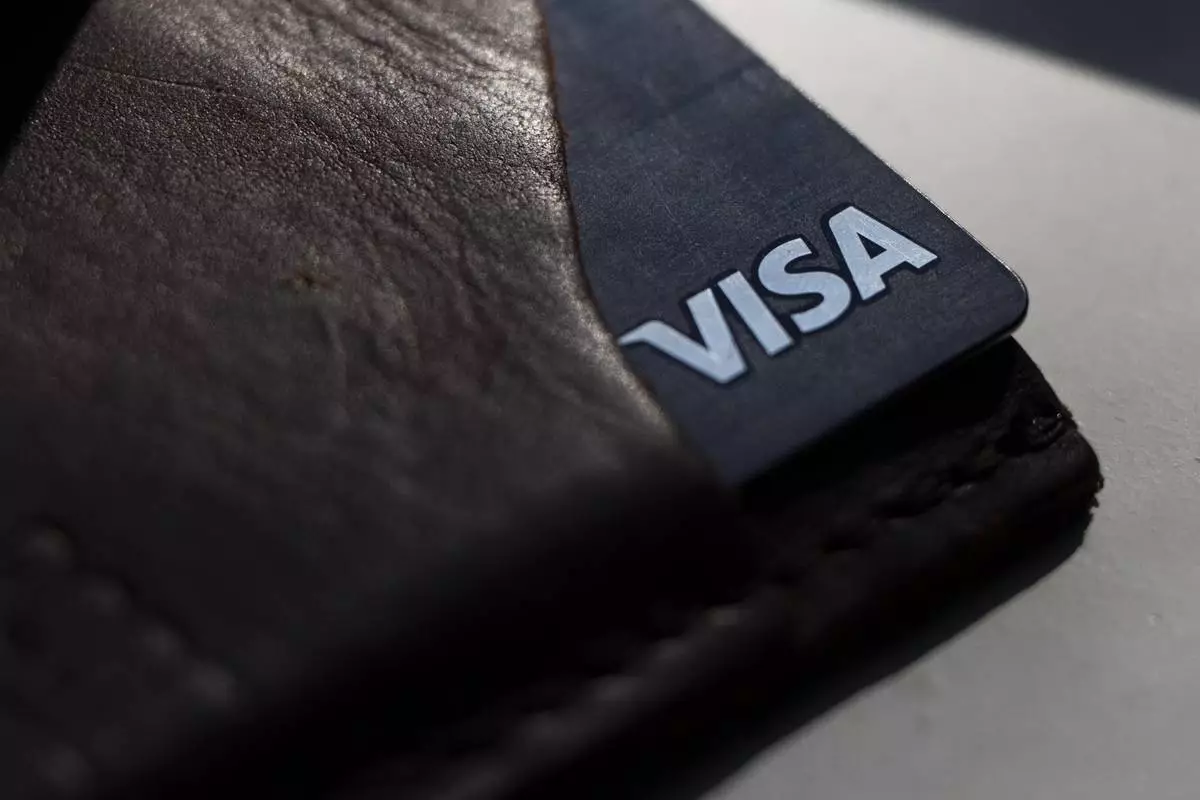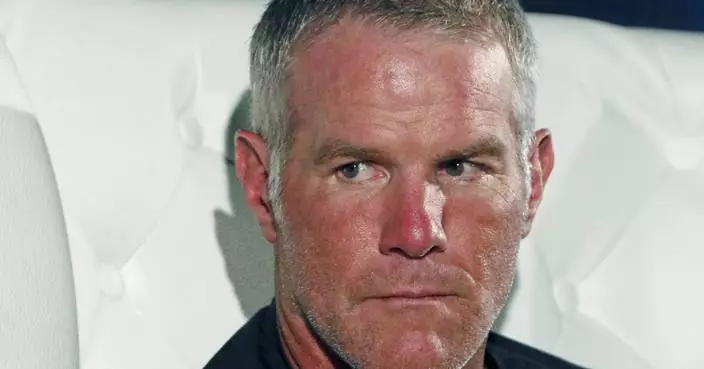BUFFALO, N.Y. (AP) — Rasmus Dahlin was so determined to not spend another lengthy offseason working out alone in his native Sweden that the Buffalo defenseman invited his teammates to attend an informal weeklong minicamp and bonding session near the Swiss Alps in July.
“Usually, I never see anyone during the summer,” Dahlin recalled. “So it was good to meet my teammates when it’s no pressure, no games involved. Just hang out.”
They skated and ate together. Boated on Lake Geneva. And they golfed — poorly, goalie Ukko-Pekka Luukkonen joked.
Most importantly, the eight Sabres in attendance — six Europeans, with defensemen Owen Power and Mattias Samuelsson traveling from North America — enjoyed an opportunity to connect amid the wondrous scenery of Lausanne without the distractions that arise once the season opens.
“You really got to know the real person, not the in-season person, which is different,” Dahlin said.
Of significance, the get-together represented the latest step in Dahlin’s evolution as the Sabres' leader, coupled with the seventh-year player’s urgency to end what’s become an NHL-record 13-year playoff drought.
“He took charge right away,” forward JJ Peterka said of how Dahlin booked the ice, gym, hotel rooms and organized post-practice outings. “I think Ras really took the next step and took the whole team under his wing.”
Buffalo enters the season planning to name a new captain after the title was left vacant once Kyle Okposo was traded to Florida in March.
Dahlin, the No. 1 pick in the 2018 draft and now the longest-tenured member of the roster, is considered the favorite to fill the role, though there's no timetable for when the announcement will be made.
The Sabres opened training camp on Wednesday under a tight schedule. They played two preseason games in Buffalo before traveling to Europe, where they will play an exhibition game against German pro team Red Bull in Munich on Friday. They then head to the Czech Republic to open the season playing two games against New Jersey in Prague on Oct. 4-5.
Dahlin, addressing Buffalo reporters for the first time since camp opened, said he hasn't given the captaincy much thought. He sustained a mid-body injury early into his first practice and rejoined the team for practice on Tuesday.
Whether or not Dahlin is named captain, what's not in question is his growing influence among teammates.
“For Ras to be able to do that, show how big of a leader he is, and he’s not doing it for show, he’s doing it because he wants to help guys,” said Alex Tuch, who was unable to partake in Dahlin’s camp due to family reasons. “It’s easy to follow a guy like that with so much compete and battle in him. It’s incredible. It make everyone’s else’s life around him easier.”
Dahlin has gone from being a shy 18-year-old rookie, who was still learning English and adapting to the rugged NHL game, to becoming a vocal presence and star playmaker. He’s topped 50 points in each of his past three seasons, and last year had a team-leading 39 assists while becoming Buffalo’s second defenseman to score 20 goals, and first since Phil Housley in 1989-90.
His biggest disappointment remains Buffalo’s inability to make the playoffs, with the Sabres making another coaching change with Lindy Ruff replacing Don Granato.
Dahlin was among numerous Sabres who expressed a desire to have more structure following Granato’s firing. And the defenseman believes management addressed players' needs by hiring Ruff, who has a no-nonsense, demanding style in returning to Buffalo for a second stint as coach.
“He knows what he's doing. I feel like he's very hard on the guys about the details, about working hard and doing the little things right,” Dahlin said. “I love it. That's what you have to do to have a good start and have a good year.”
Ruff's approach is similar to the focal role Dahlin took during the on-ice sessions in Switzerland.
“He was pretty hard on me in that camp getting my one-timer going,” said Peterka, noting Dahlin would spend time feeding him passes. “It was a no-brainer for both of us to work on that. I feel it was like pushing each other.”
Luukkonen said the turnout reflects well on Dahlin and on how tight-knit the group has become.
“He wants to set the bar high by example by how he plays, how he practices. And that's kind of the way he pushes other guys, too,” the goalie said. “It shows how the younger guys are ready to take the next step, and they want to take the step to be leaders on the team and make sure that we have the best chance to make it into the playoffs.”
AP Hockey Writer Stephen Whyno and AP freelance writer W.G. Ramirez contributed to this report.
AP NHL: https://apnews.com/hub/nhl

FILE - Buffalo Sabres defenseman Rasmus Dahlin carries the puck into the zone during the first period of an NHL hockey game against the Philadelphia Flyers, April 5, 2024, in Buffalo, N.Y. (AP Photo/Jeffrey T. Barnes, file)











